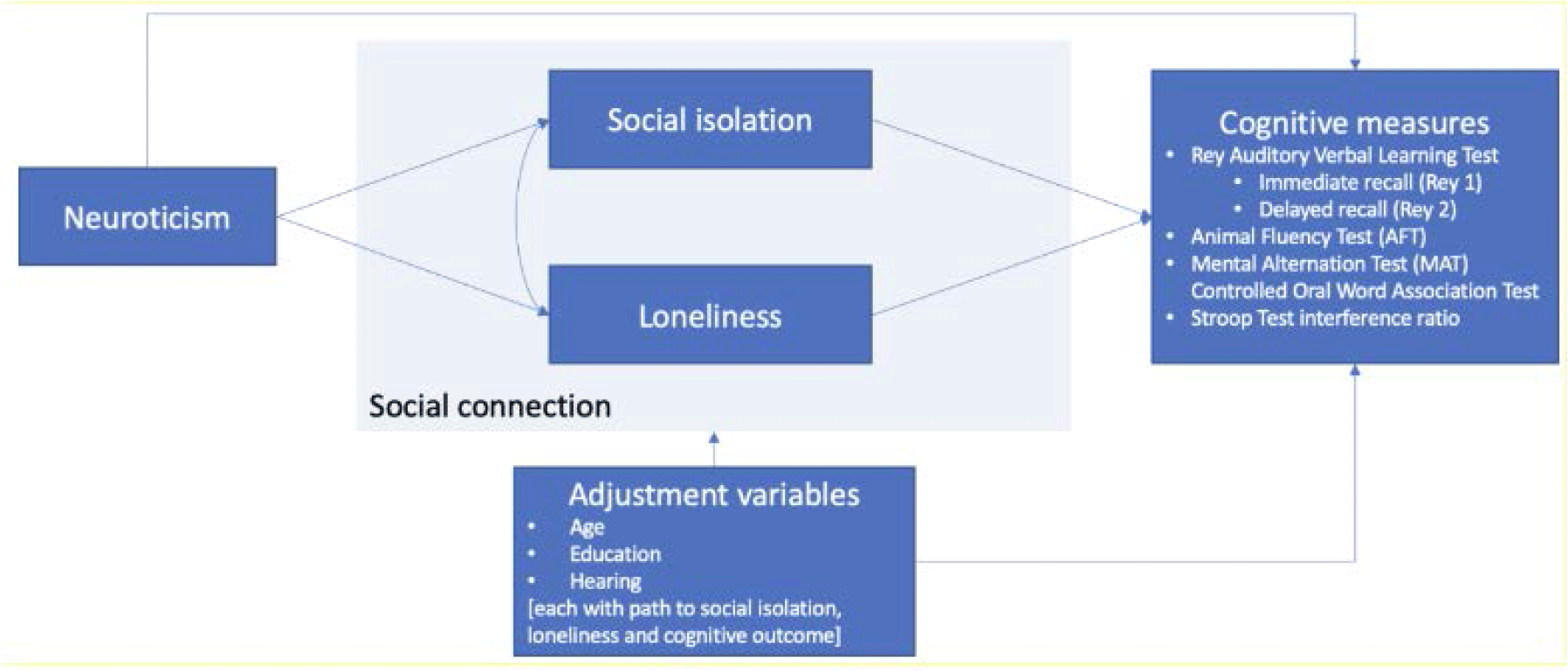No CrossRef data available.
Published online by Cambridge University Press: 02 February 2024
Social connection is associated with better health, including reduced risk of dementia. Personality traits are also linked to cognitive outcomes; neuroticism is associated with increased risk of dementia. Personality traits and social connection are also associated with each other. Taken together, evidence suggests the potential impacts of neuroticism and social connection on cognitive outcomes may be linked. However, very few studies have simultaneously examined the relationships between personality, social connection and health.
We tested the association between neuroticism and cognitive measures while exploring the potential mediating roles of aspects of social connection (loneliness and social isolation).
We conducted a cross-sectional study with a secondary analysis of the Canadian Longitudinal Study on Aging (CLSA) Comprehensive Cohort, a sample of Canadians aged 45 to 85 years at baseline. We used only self-reported data collected at the first follow-up, between 2015 and 2018 (n= 27,765). We used structural equation modelling to assess the association between neuroticism (exposure) and six cognitive measures (Rey Auditory Verbal Learning Test immediate recall and delayed recall, Animal Fluency Test, Mental Alternation Test, Controlled Oral Word Association Test and Stroop Test interference ratio), with direct and indirect effects (through social isolation and loneliness). We included age, education and hearing in the models and stratified all analyses by sex, females (n= 14,133) and males (n=13,632).

We found positive, statistically significant associations between neuroticism and social isolation (p<0.05) and loneliness (p<0.05), for both males and females. We also found inverse, statistically significant associations between neuroticism and all cognitive measures (p<0.05), except the Stroop Test interference ratio. In these models, there was consistent evidence of indirect effects (through social isolation and loneliness) and, in some cases, evidence of direct effects. We found sex differences in the model results.
Our findings suggest that the association between neuroticism and cognitive outcomes may be mediated by aspects of social connection and differ by sex. Understanding if and how modifiable risk factors mediate the association between personality and cognitive outcomes would help develop and target intervention strategies that improve social connection and brain health.